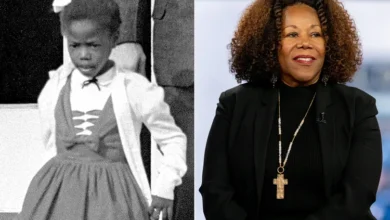First Day of Preschool Tips: Overcoming Separation Anxiety and More

Source:https://www.parents.com/
Starting preschool is a significant milestone for children, often accompanied by anxiety, crying, and resistance. Katrina Green, an early childhood teacher, explains that this anxiety stems from children being unfamiliar with the new rules and routines of preschool after spending years in their family environment. To ease this transition, Alisa Clark Ackerman advises parents to take several weeks to prepare their children for the new experience rather than treating the first day as just another event. Proper preparation can significantly reduce separation anxiety on the first day of preschool.
Preparing Kids for Preschool
Explain the routines of preschool: When preparing children for preschool, inform them about the games they’ll play and the friends they’ll meet, while reassuring them that you’ll be there to pick them up at the end of the day. However, avoid overhyping the experience or making promises about uncontrollable factors, like making new friends. If their initial experience doesn’t align with their expectations, school could appear more frightening than exciting.
Meet the teacher: Many preschools host an open house, where parents, teachers, and children can get to know each other. There will likely be many parents vying for the teacher’s attention, but make sure you get a chance to chat with them when your child is within earshot.
Visit the school: Before the school year starts, take your child to explore their classroom and discuss the daily activities they’ll participate in. Mention the school’s name, such as “Next week you’ll go to Elm Street Preschool and play with the tambourine.” Additionally, casually point out the school whenever you pass by, as suggested by Parents adviser Kathleen McCartney, Ph.D., to help familiarize your child with the new environment.
Set up playdates before the school year: Seeing familiar faces in their class will increase your child’s comfort level. You’ll get a class list during the summer, “so plan playdates with some other classmates before the big day,” says Amy Flynn, director of the Bank Street Family Center at the Bank Street College of Education in New York City, which trains teachers from around the country. “Also, ask about setting up a buddy system; you and another family in the class have each other as contacts for playdates and support before school begins.”
Keep a positive mindset: Your child will take cues from you, so be calm and confident that everything will go well. You don’t want to ask them if they’re scared too many times—that might make them even more fearful, says Flynn. But if they seem anxious in the days preceding school, reassure them that everything will be OK and that you’re nearby if they need you.
Role play: Engaging in pretend play with stuffed animals can help your child understand that they’ll be leaving you for a while but that you’ll return. For instance, you can create a scenario where a teddy bear goes to school with friends, and “Mommy Teddy” leaves and comes back after they sing a song and have a snack.
Read books: “Books that describe what happens at school, as well as validate a child’s feelings, can help quell jitters,” says Sally Tannen, director of the Parenting Center at the 92nd Street Y in New York City, which has its own preschool. These books provide your child with a sort of dry run of school in the comfort of home, where they feel safe.
How to Handle Preschool Drop-Off
Create a goodbye ritual: Establishing a goodbye routine can provide comfort and familiarity for your child, helping them know what to expect. This could be a special hug or handshake followed by a playful phrase like “See you later, alligator!” After saying goodbye, it’s important to leave quickly to prevent your child from becoming anxious about your presence. Prolonged farewells may reinforce negative feelings about preschool.
Don’t sneak away: parents should sit nearby without engaging directly in play, providing a sense of security. It’s crucial for parents to communicate their departure time clearly and to follow through on that timing. Using a visual timer can help children understand the time remaining before separation. Additionally, giving a small transitional object, like a picture or bracelet, can provide comfort. Clear warnings before goodbye and a prompt departure are essential.
Bring a comforting object:The text suggests that children can ease separation anxiety by bringing a small reminder of home, such as a favorite doll, blanket, book, or even a sippy cup with their favorite drink. These comfort objects, though seemingly minor, can significantly provide security and reassurance in unfamiliar settings.
Never make comparisons: Don’t compare your child to others during the transition to preschool, as each child processes separation differently. Honoring your child’s unique emotional journey is essential for a smooth transition. Some children may not cry but might replay the scene during play to process their feelings, while others may need to cry at each separation to work through their emotions.
Remind them that you came back: When you pick them up at the end of the day, reinforce the idea that you came back, just like you said you would. This way, each day’s drop-off won’t feel like you’re both starting teary and upsetting goodbyes all over again.
Tips for Parents Dealing with Preschool Separation Anxiety
Get to know the teacher beforehand: Meeting your child’s teacher before starting school is important as it helps both the child and the parent. Parents should inquire about the teacher’s procedures for handling children who cry for their parents and ensure that staff are prepared to assist with the transition. Understanding a child’s home life, including their eating, sleeping, and toileting habits, is crucial for easing their adjustment to preschool. Additionally, sharing calming techniques used at home and any medical issues, like food allergies, helps teachers provide better support in the classroom.
Think of preschool as a life lesson: Many parents may see their child have a bad first reaction to preschool and immediately decide to pull them out of the classroom. But that’s a bad idea: “It denies the child an opportunity to learn how to work through negative feelings and sets a precedent of not having to face problems,” Green says.
Resist surprise visits: Once you’ve left your child, resist the temptation to go back and check on them, and don’t phone the school every hour. “If you’re always checking up on your child, you risk the reciprocity of your child checking on you constantly,” says Dr. Walfish.
Give yourself a pep talk: Come up with a mantra such as, “This is best place for (your child’s name)” or “Bringing (your child’s name) here is the right decision” to remind you of why being apart is good for both you and your child. Then, keep repeating it as often as you need it!
Have patience with your preschooler: t’s OK to keep leaving the child if they keep crying, Green says. “A complete and successful transition into school can take months, especially if there are family vacations or breaks from school, when children often regress, or if there are changes happening at home.” But rest assured that in all her years of teaching, Green hasn’t encountered one student who couldn’t overcome their separation anxiety.
Image Source: https://www.parents.com/





